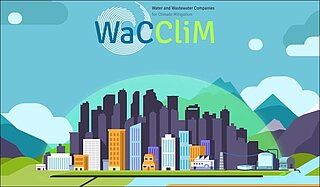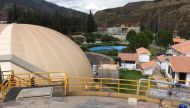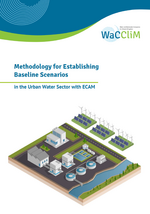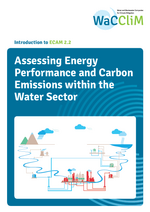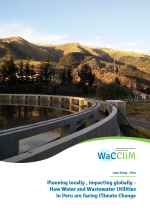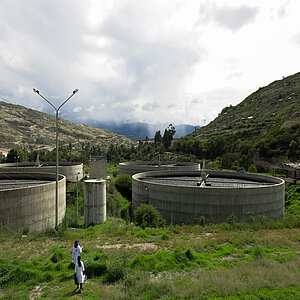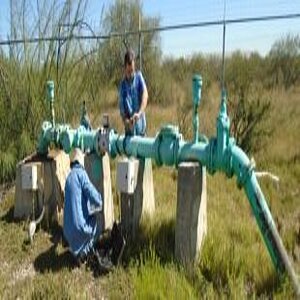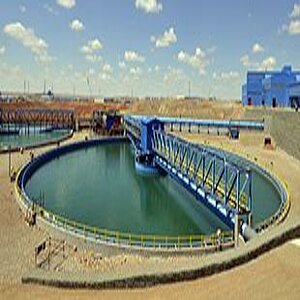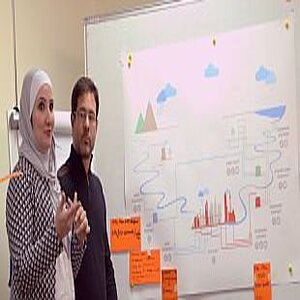Water sector in Peru reduces Carbon Footprint
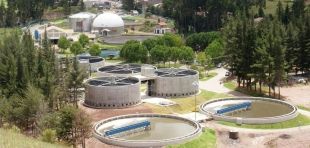
Water and wastewater utilities in Peru are pioneering a new approach to address climate change through reducing their carbon footprint and their vulnerability to climate change risks.
Water and wastewater utilities are highly vulnerable to the effects of climate change. At the same time, utilities in emerging countries are among the major energy consumers, while emitting significant amounts of carbon and other greenhouse gas (GHG) emissions in their processes. Water and wastewater companies in Peru are now pioneering a new approach towards climate neutrality, reduced energy consumption and adaptation to climate change.
The processes of collecting, treating and bringing water to citizens are increasingly threatened by the impacts of climate change. Droughts, intense rainfall or mudslides affect drinking water and wastewater services, altering the availability and quality of water, or damaging the utilities’ infrastructure. Furthermore, providing drinking water and treating wastewater are energy-intensive processes, and thus forming a significant part of a utility’s overall costs. Energy consumption typically represents about one third of a utility’s operating costs, but reaches not uncommonly up to 70%. In addition, the wastewater treatment process can produce large amounts of methane and nitrous oxide, which further increase the carbon footprint of the water sector.
In Peru, the project (WaCCliM) funded by the German Environment Ministry (BMUB) under its International Climate Initiative (IKI), carried out several awareness-raising activities among water and wastewater professionals. As a result, utilities have started to prepare their Mitigation and Adaptation Plans for Climate Change (PMACCs, for its acronym in Spanish). The PMACC initiative was developed and implemented in collaboration between WaCCliM and the PROAGUA II programme, funded by the Federal Ministry for Economic Cooperation and Development (BMZ) to support the General Directorate of Environmental Affairs of the Ministry of Housing, Construction and Sanitation and the Technical Organism for the Sanitation Services Administration.
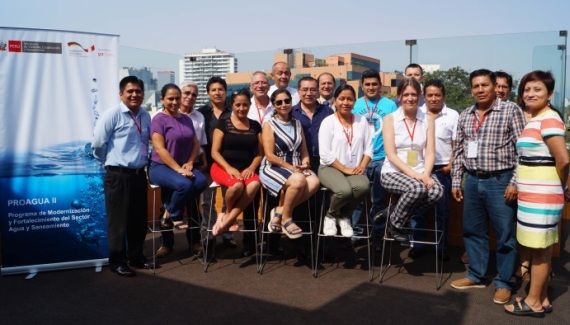
PMACCs help utility staff account for their GHG emissions and are a tool to identify mitigation and adaptation measures to climate change, contributing to the economic and environmental sustainability of the utilities, and leading them to provide better service. Developing PMACCs was included as a requirement for utilities in a new legal framework (Legislative Decree N° 1280) for the water sector - an important milestone both for the preparation of the plans and for tackling adaptation and mitigation relevant aspects.
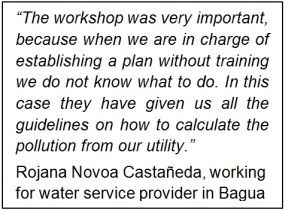 In 2016 and early 2017, staff from 42 utilities across Peru has received technical assistance for the formulation of their PMACCs, using site specific information like type of system, institutional capacities or geographical regions. In a number of workshops co-organised by WACCLIM representatives from utilities learned how to apply the "Energy Performance and Carbon Emissions Assessment and Monitoring (ECAM)" tool, developed by WaCCliM. ECAM is a free, web-based tool that allows utilities in Peru to assess their GHG emissions considering all components of the urban water cycle. These data feed the "Virtual PMACC Guide" tool, allowing water and wastewater companies to visualise how important improvements can be achieved in a short and long term, to model the reduction potential of future measures, and to prepare for future mandatory GHG reporting.
In 2016 and early 2017, staff from 42 utilities across Peru has received technical assistance for the formulation of their PMACCs, using site specific information like type of system, institutional capacities or geographical regions. In a number of workshops co-organised by WACCLIM representatives from utilities learned how to apply the "Energy Performance and Carbon Emissions Assessment and Monitoring (ECAM)" tool, developed by WaCCliM. ECAM is a free, web-based tool that allows utilities in Peru to assess their GHG emissions considering all components of the urban water cycle. These data feed the "Virtual PMACC Guide" tool, allowing water and wastewater companies to visualise how important improvements can be achieved in a short and long term, to model the reduction potential of future measures, and to prepare for future mandatory GHG reporting.
A successful example was implemented in Cusco. The WaCCliM pilot utility, SEDACUSCO, improved its services and optimized sludge management and biogas production from anaerobic sludge digestion, while also reducing annual GHG emissions by more than 5300 tCO2e per year. Besides, the utility plans to improve the energy efficiency of the Vilcanota water pumping system, in order to reduce GHG emissions by approximately 1300 tCO2e per year; with part of the investment been recouped due to the savings in energy costs.
Once finalised, PMACCs will serve as reference studies for the long-term planning of utilities. This opens up new opportunities for financing and allows implementing adaptation and mitigation measures that not only lead to improved service levels but will also secure a sustainable future for the water and sanitation sector.
The link has been copied to the clipboard
Contact
IKI Office
Zukunft – Umwelt – Gesellschaft (ZUG) gGmbH
Stresemannstraße 69-71
10963 Berlin



